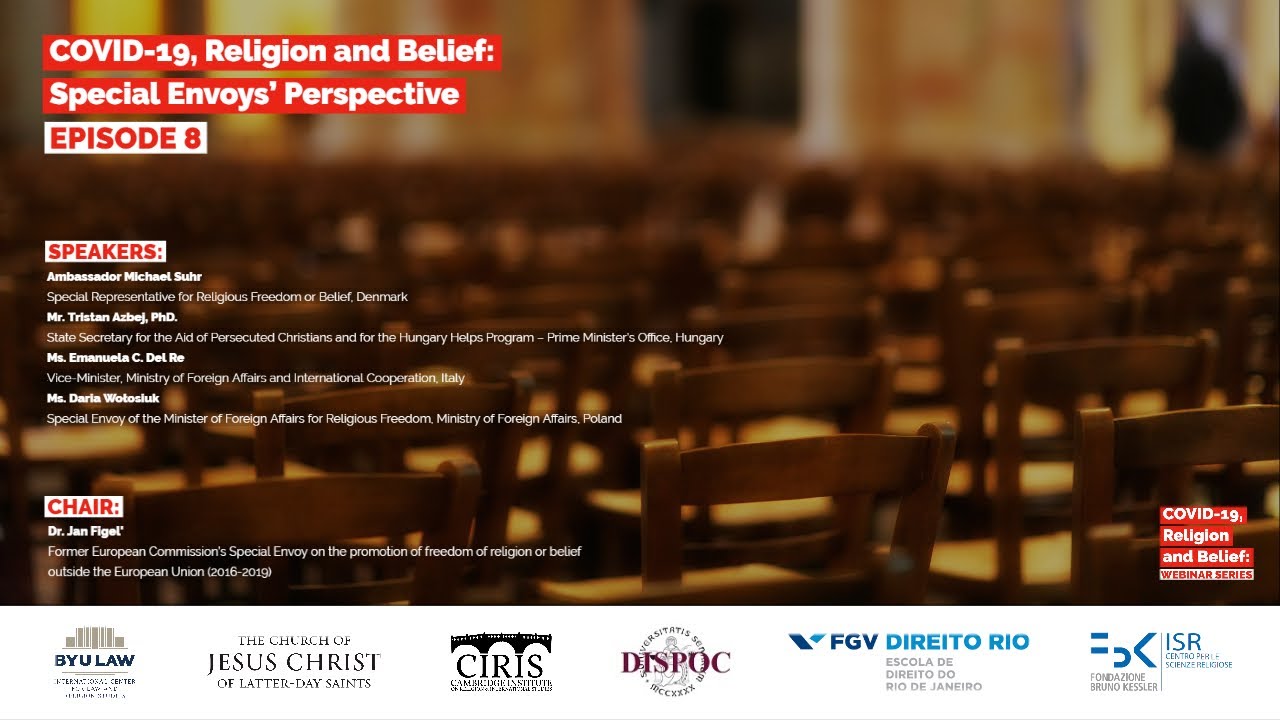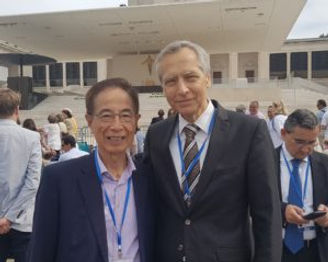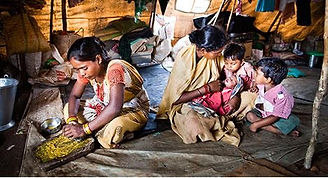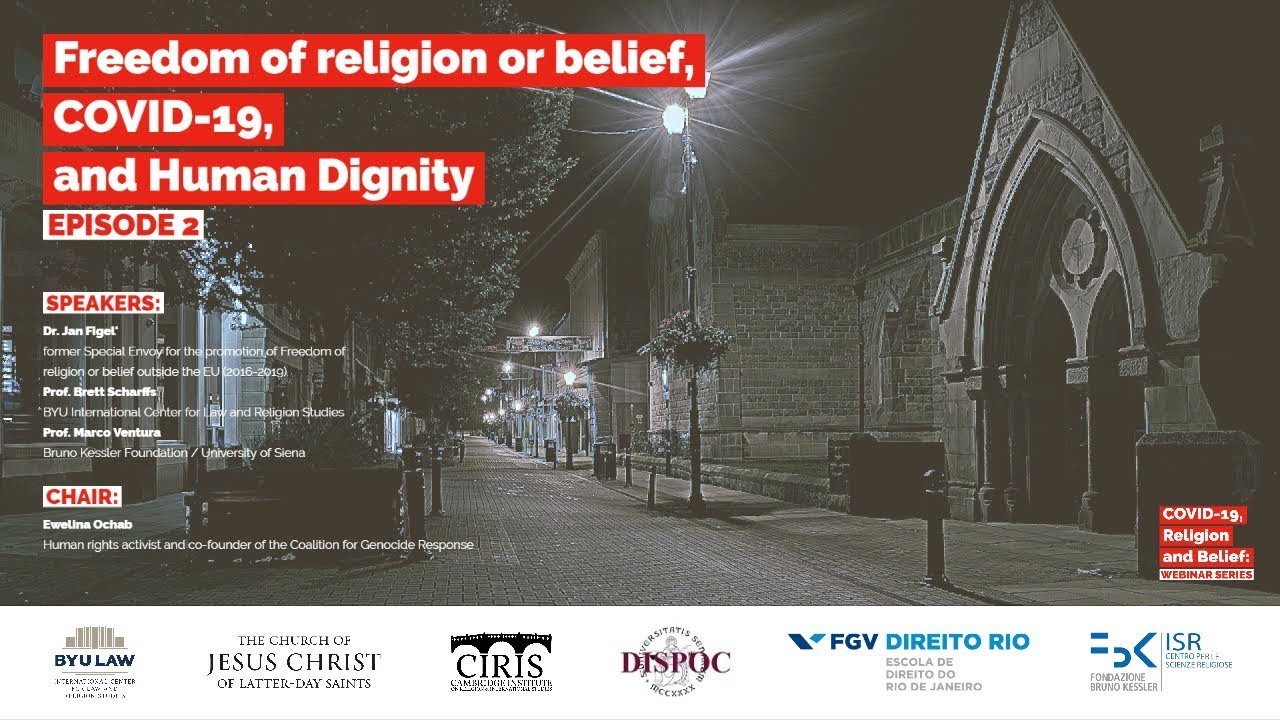Category: English
-
EU politicians and religious leaders demand reinstatement of religious envoy
The previous religious envoy was influential in securing the release of the Pakistani Christian, Asia Bibi, from a death sentence in 2019. Calls are growing for the European Union to reinstate its Special Envoy on Religious Freedom, after the post was abolished by the new Brussels Commission under Ursula Von Der Leyen. “In some countries,
-
EU FoRB Day – A call for the renewal of the mandate of the Special Envoy on Freedom of Religion
Seven years ago, the EU Guidelines on freedom of religion or belief (FoRB) were adopted by the Foreign Affairs Council. Today, the FoRB community celebrates this informally as ‘EU FoRB Day’ and civil society take this opportunity to call for the renewal of the mandate of the Special Envoy. This past April came and went
-
COVID-19, Religion and Belief: Special Envoys’ Perspective
The following questions were addressed: Thursday, 28 May 2020 at 3:00 PM CEST https://spark.adobe.com/page/4vSJTeJhUd96y/#ep-8-covid-19-religion-and-belief-special-envoys-perspective
-
APPG statement on EU’s Special Envoy on FoRB
The UK All-Party Parliamentary Group for International Freedom of Religion or Belief (FoRB) urges the European Commission to renew the mandate of the Special Envoy on FoRB outside the EU. Dr Ján Figel was appointed the European Commission’s first Special Envoy for the promotion of FoRB outside the EU, following a resolution adopted by the
-
Hong Kong arrests major Pro-Democracy figures. Ján Figeľ calls on the EU to act immediately
Hong Kong police rounded up at least 15 veterans and supporters of the opposition camp in a swoop on Saturday that netted, among others, media tycoon Jimmy Lai Chee-ying and prominent barrister Martin Lee Chu-ming for their roles in unlawful protests late last year, South China Morning Post reported. While opposition politicians have been included
-
COVID-19 Crisis, Human Dignity and Freedom of Religion or Belief
The theme I wish to explore briefly is the relation between human dignity, religious freedom and current corona virus pandemic. Evidently, medical situation in the world is critical in many countries. It will take time and make serious impact on economies, on social situation and on human, interpersonal and international relations. Our world will change.
-
COVID-19 Crisis, Human Dignity and Freedom of Feligion or Belief
The theme I wish to explore briefly is the relation between human dignity, religious freedom and current corona virus pandemic. Evidently, medical situation in the world is critical in many countries. It will take time and make serious impact on economies, on social situation and on human, interpersonal and international relations. Our world will change.
-
Covid-19, Religion and Belief: Webinar Series – Episode 2
This Conversation was developed from contributions to an international Webinar held 16 April 2010: Freedom of Religion or Belief, COVID-19 and Human Dignity , Episode 2 of the Webinar Series COVID-19 and Freedom of Religion or Belief. Panelists in this Webinar addressed the following and other questions: How is this global emergency affecting our concept
-
The importance of Religious Freedom for Europe
EU Freedom of Religion and Belief (FoRB) policy: Considerations on Ján Figel‘s final report by Alberto Melloni, professor of History of Christianity at the University of Modena-Reggio and Chair Holder of the Unesco Chair on Religious Pluralism and Peace for his university and the University of Bologna Struck by the scourge of COVID-19, grappling with
-
OPEN LETTER: 44 Parliamentarians and Dignitaries from 18 Countries Call on Carrie Lam to Stop Police
44 Parliamentarians and dignitaries from 18 countries, including Asia’s leading Catholic cardinal, the daughter of Indonesia’s former president and former UK House Of Commons Speaker John Bercow, have written an Open Letter to Hong Kong’s Chief Executive Carrie Lam expressing “grave concerns at the recent escalation of police brutality over the Christmas period.” The letter





